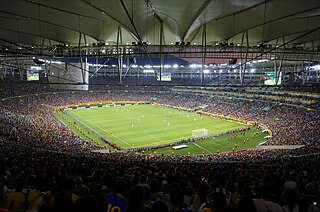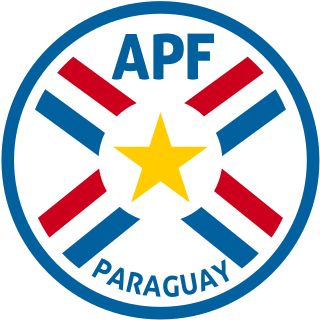
Club de Regatas Vasco da Gama ; is a Brazilian football club that was founded on August 21, 1898, by Portuguese immigrants, and still has a strong fanbase among the Portuguese community of Rio de Janeiro. It is one of the most popular clubs in Brazil, with more than 20 million supporters.

The Maracanã, officially Estádio Jornalista Mário Filho, is a football stadium in Rio de Janeiro, Brazil. The stadium is part of a complex that includes an arena known by the name of Maracanãzinho, which means "The Little Maracanã" in Portuguese. Owned by the Rio de Janeiro state government, it is, as is the Maracanã neighborhood where it is located, named after the Rio Maracanã, a now canalized river in Rio de Janeiro.

Romário de Souza Faria, known simply as Romário, is a Brazilian politician who previously achieved worldwide fame as a professional footballer. A prolific striker renowned for his clinical finishing, he is regarded as one of the greatest players of all time. Romário starred for Brazil in their 1994 FIFA World Cup success, receiving the FIFA Golden Ball as player of the tournament. He was named FIFA World Player of the Year the same year. He came fifth in the FIFA Player of the Century internet poll in 1999, was elected to the FIFA World Cup Dream Team in 2002, and was named in the FIFA 100 list of the world's greatest living players in 2004.
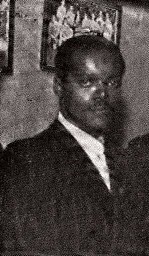
Leônidas da Silva was a Brazilian association footballer and commentator, who played as a forward. He is regarded as one of the most important players of the first half of the 20th century. Leônidas played for Brazil national team in the 1934 and 1938 World Cups, and was the top scorer of the latter tournament. He was known as the "Black Diamond" and the "Rubber Man" due to his agility.
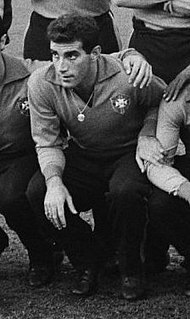
Gérson de Oliveira Nunes, generally known as GérsonPortuguese pronunciation: [ˈʒɛʁsõ],, nickname Canhotinha de ouro is a Brazilian former association footballer who played as a midfielder. He won numerous national trophies with the club sides of Flamengo, Botafogo, São Paulo and Fluminense. He is widely known as being "the brain" behind the Brazilian Football Team that won the 1970 FIFA World Cup in Mexico.

Antônio Augusto Ribeiro Reis Júnior, commonly known as Juninho or Juninho Pernambucano, is a Brazilian former footballer who played as a midfielder and a current football pundit. Noted for his bending free kicks, he is widely considered to be the greatest free kick-taker of all time and holds the record for the highest number of goals scored through free kicks with 77, ahead of the likes of Pelé (70), Víctor Antonio Legrotaglie and Ronaldinho, and David Beckham (50).

Dirceu José Guimarães, known as Dirceu, was a football player from Brazil. He played as an attacking midfielder with many teams, in particular Botafogo and the Brazilian national team, as well as numerous Italian teams in the 1980s–early 1990s.
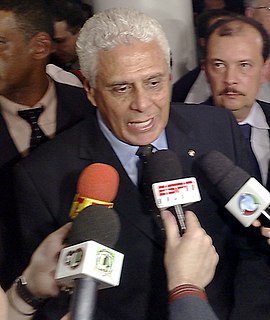
Carlos Roberto de Oliveira, known as Roberto or Roberto Dinamite is a Brazilian former footballer and politician. He was born in Duque de Caxias, Rio de Janeiro state. With a career as centre forward spanning over twenty years, Roberto is Vasco da Gama's player with the most appearances and all-time top-scorer, as well as the overall leading scorer in the Brazilian Série A. At the national level, Roberto played in the 1978 and 1982 FIFA World Cups and the 1972 Olympic Games. He was president of Vasco da Gama from 2008 to 2014.
Edvaldo Jizídio Neto, commonly known as Vavá, was a Brazilian footballer who is widely considered one of the best strikers of his generation. His nickname was "Peito de Aço". He played as a main striker for Sport Club do Recife, C.R. Vasco da Gama, S.E. Palmeiras and the Brazilian national team.
Alfredo Moreira Júnior, usually known as Zezé Moreira, was a Brazilian footballer and football manager that coached Brazil at the 1954 FIFA World Cup. He was born in Miracema, Rio de Janeiro, Brazil. He is a brother of Aymoré Moreira, winner of the 1962 FIFA World Cup and Ayrton Moreira, both of them successful coaches in the Brazilian football. In 1976, as Cruzeiro's manager, he won the Copa Libertadores.
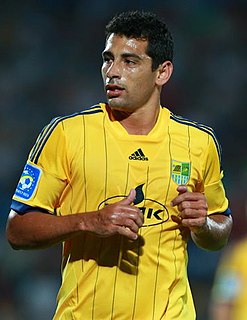
Diego de Souza Andrade, or simply Diego Souza, is a Brazilian professional footballer who plays for São Paulo FC as an attacking midfielder or forward.
Francisco Aramburu, or Chico was a Brazilian footballer who played striker.
Albino Friaça Cardoso, best known as simply Friaça, was a Brazilian football striker.

Moacir Barbosa Nascimento was a Brazilian professional football goalkeeper whose career spanned 22 years. He was regarded as one of the world's best goalkeepers in the 1940s and 1950s, and known for not wearing gloves, as would be typical. Nowadays he is mainly associated with Brazil's defeat against underdogs Uruguay in the decisive match of the 1950 FIFA World Cup, an upset dubbed the Maracanazo.

The Copa Rio was the first intercontinental football club tournament. Brazilian press, at the time, dubbed it as "club world cup", a title that would later be applied to the Toyota Cup. Copa Rio presented a format resembling the one adopted by FIFA in the first edition of FIFA Club World Cup held in 2000. It was an international club tournament played by 8 teams from Europe and South America between 30 June and 22 July 1951 in Sao Paulo and Rio de Janeiro, in the stadiums of Pacaembu and Maracanã, respectively.
Danilo Alvim Faria was a Brazilian footballer. He was a member of the ill-fated Brazilian 1950 World Cup team. One of the greatest center-halves in the World during his prime, he was renowned as a very sophisticated and elegant player who possessed fine ball control and accurate long range passing.

Waldyr Pereira, nicknamed Didi, was a Brazilian footballer who played as a midfielder or as a forward. He played in three FIFA World Cups, winning the latter two and was awarded the Golden Ball, given to the tournament's best player, for his performance at the 1958 competition.

Paulo Henrique Sampaio Filho, commonly known as Paulinho, is a Brazilian professional footballer who plays as a forward for German club Bayer Leverkusen and the Brazil national U20 team.
The 2015 season is the 120th year in the club's history, the 104th season in Clube de Regatas do Flamengo's football existence, and their 45th in the Brazilian Série A, having never been relegated from the top division.

